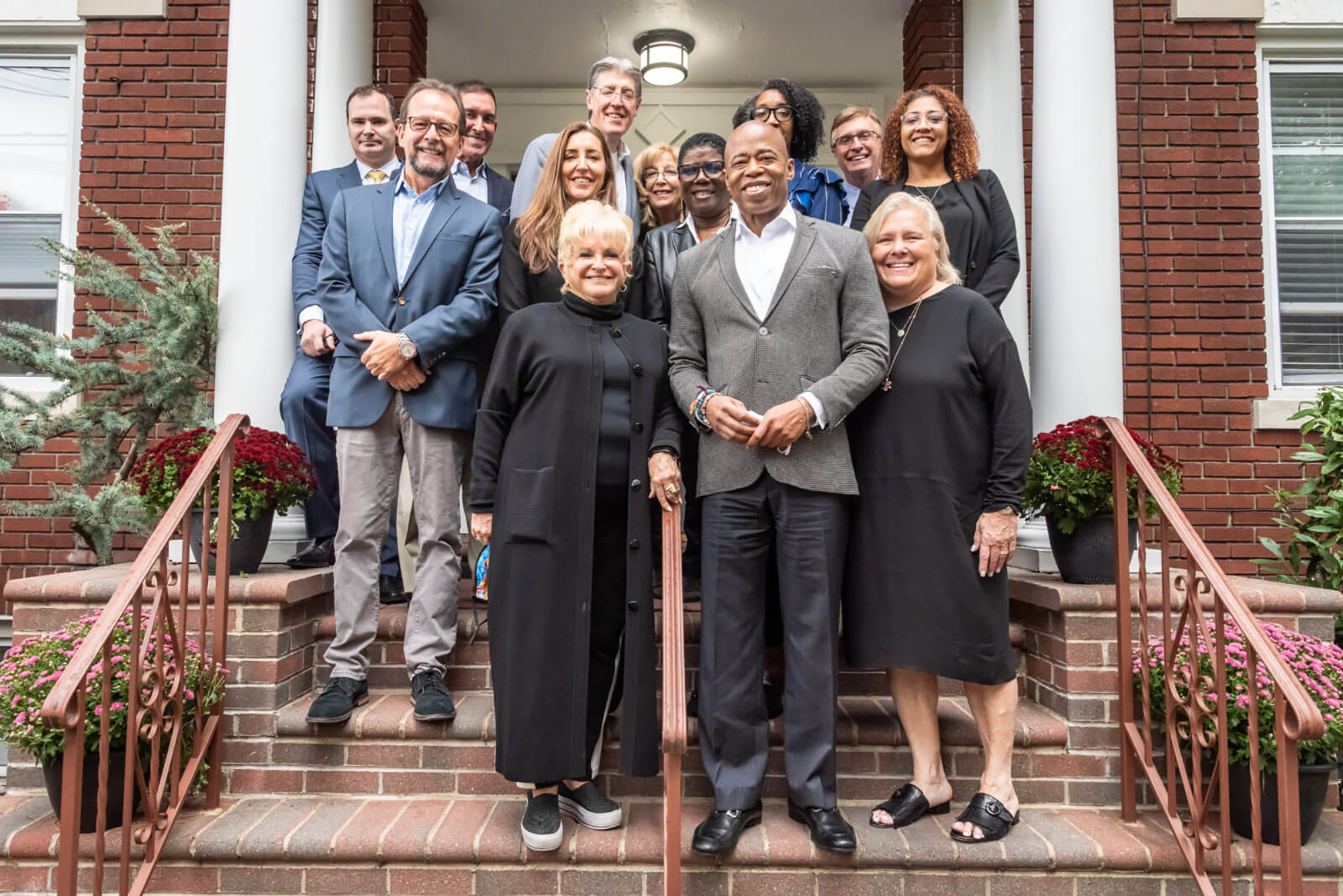Video of Eric Adams Speaking to I/DD Service Leaders on October 23rd
On Saturday October 23rd, Marco Damiani, CEO of AHRC NYC, was one of 4 NYC IDD services Leaders who participated in a small roundtable discussion with NYC Mayoral Candidate and Brooklyn Borough President Eric Adams. During the discussion, Mr. Adams was highly engaged and showed good awareness of the needs of people with IDD, their families and providers, and committed to working with all stakeholders. In addition, he asked for the group to provide him top-level issues and recommendations. The Roundtable was held, in part, as a response to a letter from AHRC New York City board president Ray Ferrigno. The letter is below.
Letter from AHRC NYC Board President, Ray Ferrigno, to Mayoral Candidate/Borough President Eric Adams
To: Eric Adams
My name is Ray Ferrigno and I am the President of the Board of Directors of AHRC New York City, the largest nonprofit provider of services to people with developmental disabilities in New York State. More importantly, I am the parent of a 28-year-old young man with autism. I was taken aback on September 23rd when Eric Adams, the likely mayor to be of New York City, made a comment during an interview on MSNBC’s Morning Joe, in which he called the closure of Willowbrook State School “a mistake” and an “overreaction.” The clip can be viewed here: Eric Adams: We can bring control back to the city without being heavy-handed (msnbc.com) (beginning at the 10:50 mark exact quote). I was further dismayed at the flat-footed response from the show’s hosts.
I have spent the last 28 years advocating for the supports and services that would enable my son to live a happy and safe life, a life where he would be known and respected within the community he lives in and treated with the dignity and respect that every parent would demand and expect for both their children and for themselves. My family has been blessed in many ways. My son has received support and services that were built in New York from the ashes of Willowbrook. The post-Willowbrook era built an extraordinary system to support people with developmental disabilities.
The voices of parents and advocates were heard first in the courts and subsequently by legislators. However, over the last twenty years, this community has been progressively marginalized gradually but systematically cast into the shadows, the once clear salient images, and voices of the Willowbrook class (some 5400 people) are in danger of being lost to history. As time passes, they have been muted.
Parents like myself, who have been the beneficiary of the Willowbrook atrocities have grown complacent. We speak to our elected officials with gentle and polite tones, hoping that they might look kindly upon our plight and champion our cause for our children’s sake. Many may recoil at my use of the words “Willowbrook atrocities” as “too strong.” I have been told that referring to the truths of Willowbrook makes people “uncomfortable.”
To those who feel my words are extreme, I encourage you to read the public record of Willowbrook or to speak to my colleague on the Board of Directors whose son resided at Willowbrook in the 1960s and can offer firsthand witness. I would also encourage you to read The Willowbrook Wars by David and Sheila Rothman which presents a well-documented, moving, historical narrative.
As parents, advocates, and providers we are called to hold dear the history of Willowbrook. On behalf of our children and the people we support, we are tasked to raise up the voices of the Willowbrook children and adults who were mistreated and forgotten by government. We have a duty to ensure those voices are heard loud and clear in our public spaces, with our political leaders, and with the media. We need to share our history and our stories such that the horrors of Willowbrook will never be repeated, not for our children, not for any child or adult, ever.
These conversations are not meant to condemn the comments of a political leader or criticize media personalities.
It is rather an invitation for them to better understand the lived experience of families doing their best to support their children with unique needs, families struggling to ensure the safeguards that will allow their children to have the least restrictive opportunities that also keep them safe and happy, families who should have the solace and confidence in knowing that closing Willowbrook was an act of justice and protection for the neediest of our brothers and sisters.
It is our hope that this becomes an opportunity to engage the new leadership of New York City in a renewed conversation to revisit and remind society of the truths of a place called Willowbrook and ultimately and most importantly a reminder to keep the promise made over 40 years ago.
Ray Ferrigno
President
AHRC New York City Board of Directors
AHRC New York City is a 72-year-old organization with 5,000 staff that annually touch the lives of over 15,000 children and adults with developmental disabilities and their families, at over 150 program locations in the five boroughs of the city. This speaks to comments recently made by Eric Adams on MSNBC’s Morning Joe regarding Willowbrook. Mr. Ferrigno’s words, as he says, are not meant to condemn any political figure or the media, but rather to shed light on a history that seems to have been forgotten and needs to be remembered to not repeat the cruel and inhumane mistakes of the past. As an organization that was at the center of the Willowbrook Consent Judgment, we at AHRC NYC welcome the opportunity to speak with you and your representatives to set the record straight and most importantly ensure that the enormous progress made in New York State for people with developmental disabilities since the closing of Willowbrook continues.

